Seminar “Façade Engineering With Glass”
![]()
Glass is the design medium of the today’s architecture and it will may easily become the material of choice of tomorrow. Kaz developed a new seminar about the architectural glass, which addresses the typical architectural questions: how to use the glass to achieve the desired architectural goals, and what advances in technology help to shape the modern architecture.
We will talk about spectrally selective coatings, insulative glass, acoustic glass, security glass, self-cleaning glass, photovoltaic arrays, anti-reflective glass, switchable glass, and low-iron glass, structural characteristics of glass, as well as LED media walls. We will also discuss what old challenges remain, such as misaligned performance expectations, obsolete codes and standards, production size limits, dimensional tolerances, energy and security misconceptions, glare, and life expectancy. We will also discuss challenges that emerged recently, such as cladding two-directionally curved facades. Proper glass specification, that helps avoid surprises in the field, would be discussed as well. Daylight and Solar Heat Gain simulation software will be discussed.
This seminar, like other Kaz’s seminars, is offered in the highly interactive mode, flexibly adjusted to the needs of the audience, filled with quizzes, and generally entertaining, to make the transfer of the highly-technical content easier on a recipient.
The seminar is slanted toward the average architectural audience by avoiding discussions about forensics whenever possible. However, we may address some common issues, such as glass blemishes, glass matching, and impact resistance, which are tangent to the typical architectural scope. We specifically avoided boring topics such as: the history of glass, descriptions of production lines and furnaces, detailed biography and gallery of photographs of founders, their families and coworkers, because you have already seen them in seminars of other authors.
The details are available at http://www.b-e-c.us/information.html#seminars (number 8 on the list).

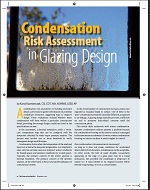 Condensation Risk Assessment
Condensation Risk Assessment Facade Access
Facade Access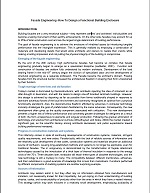 Facade Engineering. How To Design a Functional Building Enclosure
Facade Engineering. How To Design a Functional Building Enclosure Facade Impact Resistance Manual
Facade Impact Resistance Manual Foggy Glass Disease
Foggy Glass Disease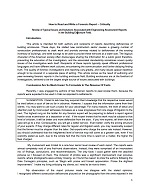 How To Write and Read a Forensic Report
How To Write and Read a Forensic Report Movements and Tolerances
Movements and Tolerances Review of Curtain Walls, Focusing on Design Problems and Solutions
Review of Curtain Walls, Focusing on Design Problems and Solutions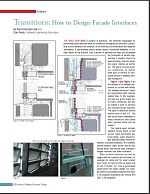 Transitions: How to Design Facade Interfaces
Transitions: How to Design Facade Interfaces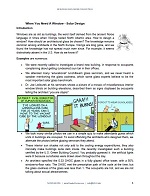 When You Need A Window – Solar Design
When You Need A Window – Solar Design
Leave a Reply
You must be logged in to post a comment.